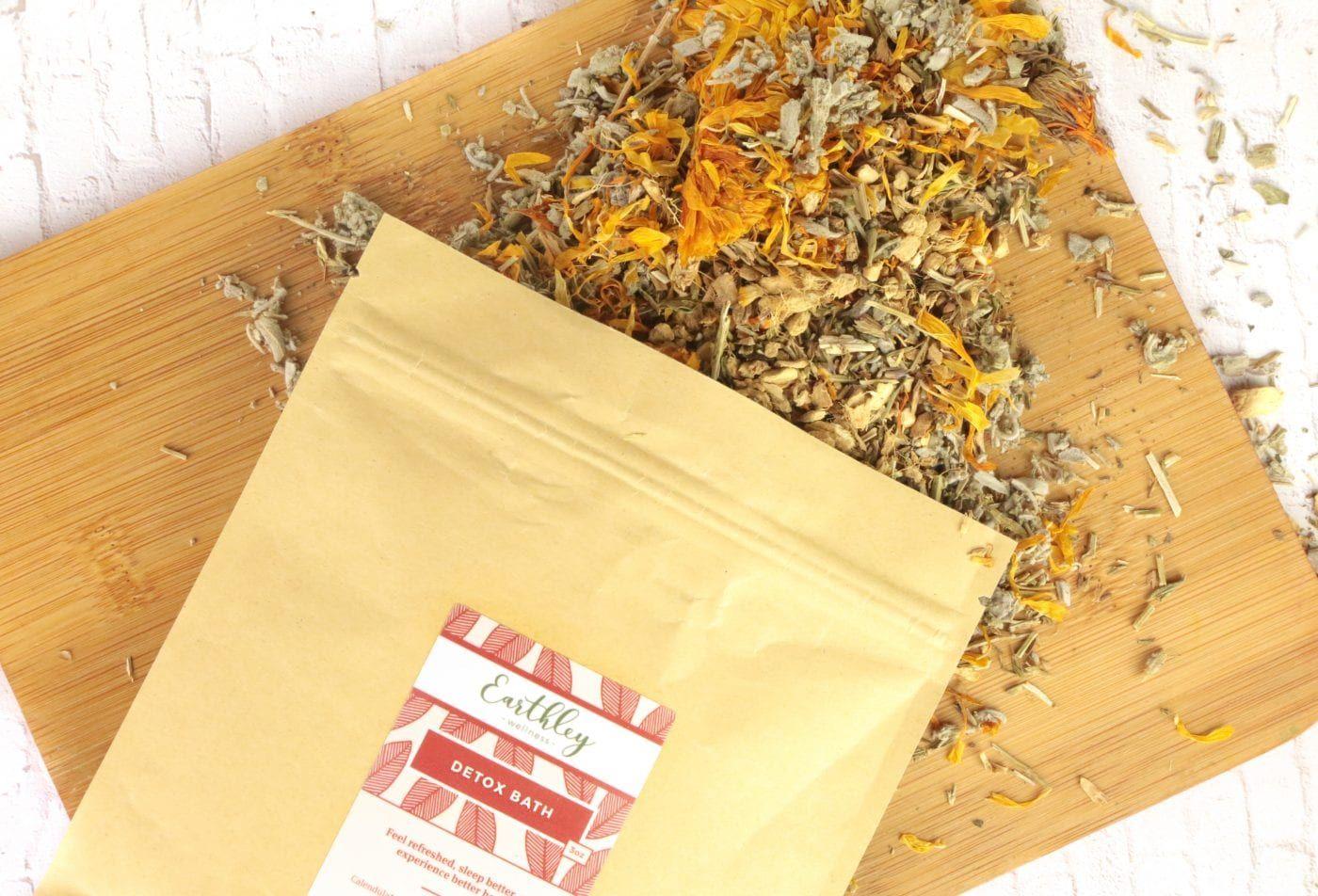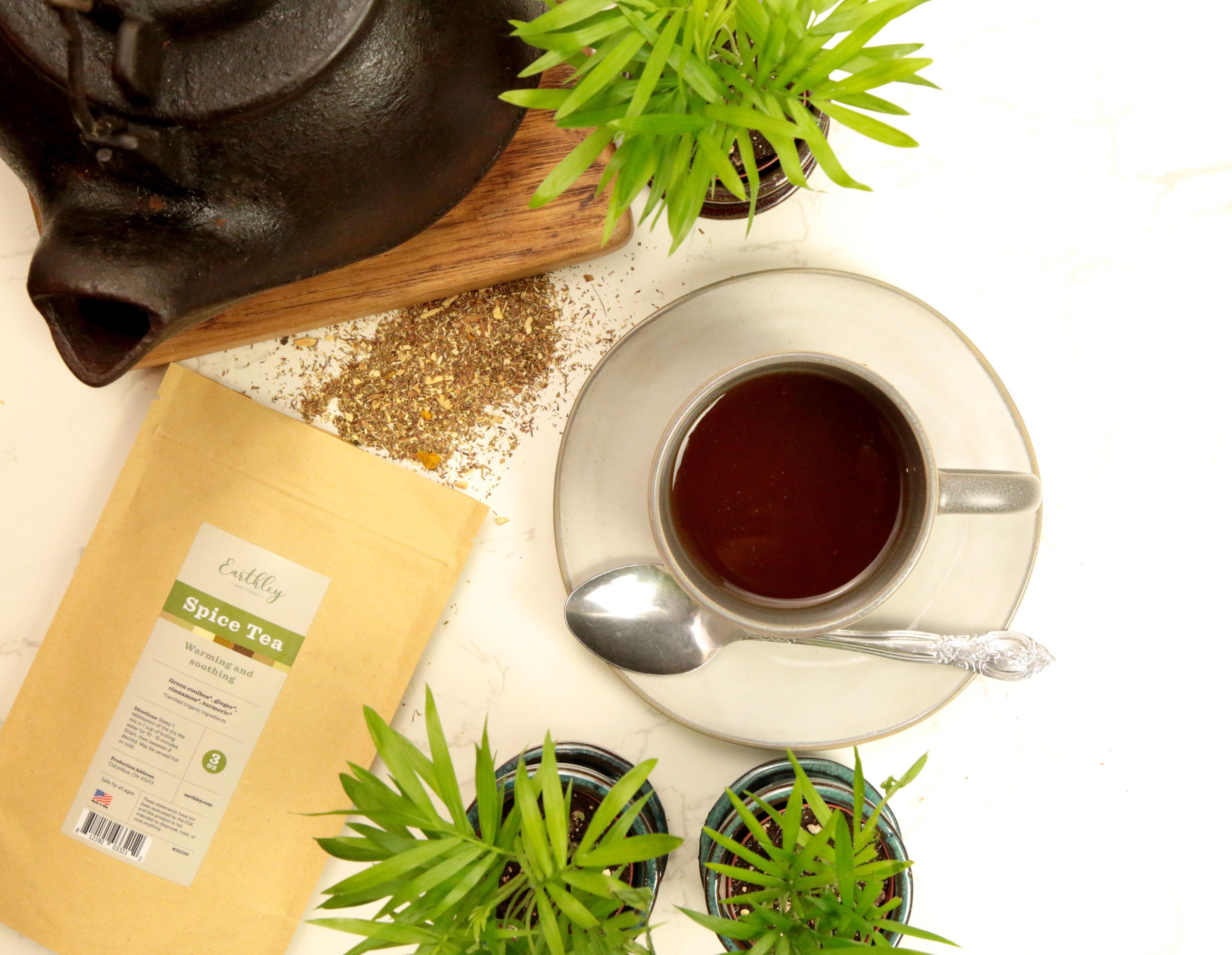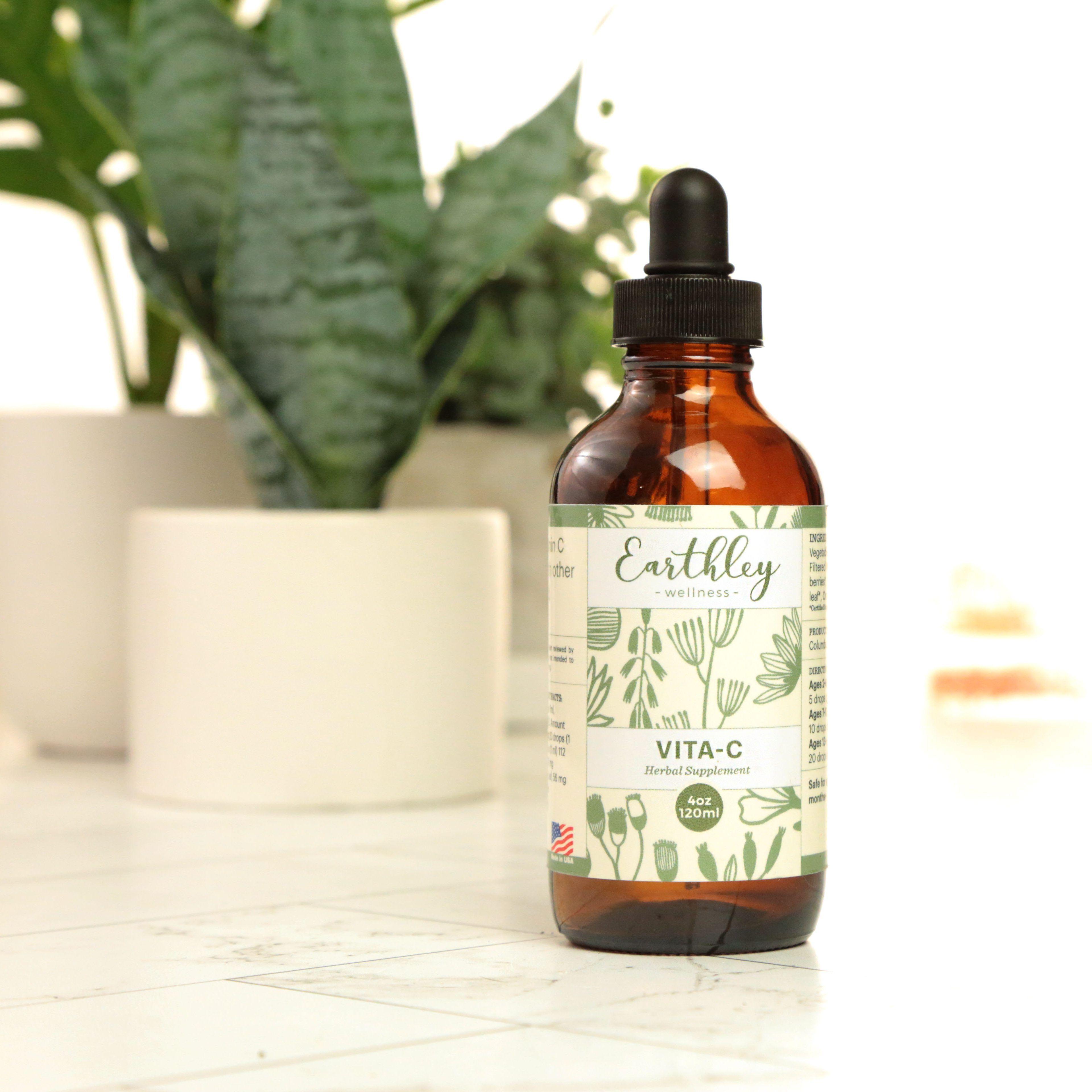How to Support Fevers Naturally

Worrying comes with the territory of being a parent, especially when it comes to fevers. Many of us feel that surge of panic when we see the thermometer climb, reaching for our phones to call the doctor, repeatedly checking the temperature, and giving acetaminophen or other fever reducers to bring it down quickly.
Temperatures above 101°F can feel especially scary to some parents, and it’s tempting to try anything to make the fever go away—sometimes even alternating medications just to keep it down.
But is this really the best approach? In most cases, it’s not. If you’ve felt this way, know that you’re not alone, and it’s certainly not your fault. The fear around fevers is so common and often rooted in mainstream messaging that it makes us see them as dangerous. But in reality, a fever isn’t an illness itself; it’s a symptom – a signal that the body’s immune system is hard at work fighting off an infection.
So next time a fever shows up in your home, try to take a deep breath. Instead of rushing to stop the fever, consider ways to support it and boost the immune system as it does its job.
What A Fever Does in the Body
Before you take action, it’s so important to understand why we get fevers in the first place. This can help us see why lowering them right away may not always be the best idea.
We’re surrounded by germs all the time. Usually, our bodies can handle this exposure, but when we’re run down, those germs can sometimes take hold, and that’s when we start to feel sick. When the immune system is working well, it detects these unwanted invaders and mounts a natural defense response—which often includes a fever. The rise in temperature isn’t random; it’s an intentional way to activate immune defenses to help kill off the infection.
Our immune system has two main parts: the innate and the acquired systems. The innate immune system is the body’s “first responder,” setting up barriers to keep germs out. The acquired immune system, meanwhile, is responsible for creating antibodies, which are like custom-designed shields, to recognize and protect us against specific diseases.
So, when a fever kicks in, it’s not just a sign that something’s wrong; it’s one of the body’s frontline tools, activating the immune system and signaling it to get to work (1). Both immune systems come together to fulfill three primary roles:
- Fight disease-causing germs (pathogens), removing them from the body
- Recognize and neutralize harmful substances from the body
- Fight disease-causing changes in the body, such as cancer cells (2)
The human immune system is truly remarkable—it's equipped with the potential to create up to a quintillion (that’s one million trillion!) unique antibodies. Imagine it like a memory bank: every time your body encounters a germ for the first time, it stores detailed information about it, especially the best ways to fight it off. So, if that same germ comes back, your immune system is ready. It recognizes the intruder, quickly pulls up the stored "data," and mobilizes a faster, targeted defense.
Think of it like a dedicated army. These antibodies have been holding onto specific intel, just waiting for the chance to defend against this particular threat, and now their mission is clear: destroy the intruder.
And fever? It’s one of the body’s key tools in this defense. Raising the temperature activates the immune response, gearing it up to fight effectively. At the same time, the higher heat makes it tough for many germs to survive. So, when a fever strikes, it’s not just a symptom—it’s a powerful, natural part of your body’s fight plan (3).
Can Fevers Get Too High?
The worry of brain damage is pretty common, but this is extremely unlikely unless the temperature reaches the 105 – 107ºF range (4). Typically, the body will not naturally allow the temperature to go high enough to cause itself damage. Fever is a way to help the body fight off illness, and it will not harm itself in the process. Extremely high fevers that can cause damage are often because the parents tried to artificially lower the fever or were caused by vaccines/medication. Normal, natural illnesses do not cause these violent fevers.
Some parents worry about febrile seizures. These generally occur if the temperature spikes are very high, very quickly. Even if the fever doesn’t go that high, the rapid change causes them, not the number on the thermometer. Again, this is usually a reaction to a vaccine, a parent’s attempt to lower the temperature artificially, sunstroke, or some other “unnatural” toxin being introduced to the body.
Natural illnesses usually do not spike fevers very quickly; they tend to rise slowly, and febrile seizures are extremely rare and caused not by the higher temp itself but a dramatic and quick change in temp. Should they occur, though, they are part of the body’s attempt to regain homeostasis, and they do not cause permanent damage. They are scary to watch, but they will not hurt your child. Most doctors recommend getting seen with the first febrile seizure to ensure that’s what it is, but after that, they can usually be handled at home.
Is Lowering A Fever A Good idea?
You might say, “Okay, but my child is miserable and doesn’t rest very well with a fever. Isn’t it better to lower it and allow them to sleep? What’s the real harm in lowering it a little?”
Unfortunately, a lot! First, the immune system can’t effectively activate with the fever absent because the catalyst – the fever – is no longer there. The fever is necessary to trigger the enhanced and accelerated immune defenses!
When we rush to lower a fever, a variety of things happen. Suddenly, the temperature is no longer high enough to kill the intruder, which means that the bug can multiply and spread more effectively. This prolongs the illness because our immune system loses the opportunity to kill the bug when it is milder and fewer. Basically, “treating” a fever instead of supporting it extends the bug’s visit.
Normal fevers (as part of illness) are controlled by the body’s hypothalamus (in the brain). The hypothalamus has specifically directed the body to raise its set temperature and will not allow that temperature to get too high or dangerous. When you try to lower it, the body will fight against it, distracting it from its main mission!
Second, acetaminophen and ibuprofen can be pretty dangerous. These medications are the #1 and #2 causes of liver failure in this country (and other developed countries, including Canada and the UK) (5). Acetaminophen depletes glutathione, which functions heavily in immune function (6). Also, since these medications are foreign substances and therefore effectively small doses of poison, the body’s resources are directed towards clearing the body of this “poison” before it can do any harm, instead of fighting the actual illness!
Risks of Acetaminophen
- Increased risk of end-stage renal disease (7)
- Cardiometabolic risk (8)
- Increased risk of kidney cancer (9)
- It affects emotional processing (10)
- It may have neurodevelopmental consequences during pregnancy (11)
- Linked to Stevens-Johnson Syndrome (12)
- Endocrine disruptor (13)
- Linked to asthma (14)
Risks of Ibuprofen
- May cause stomach problems such as peptic (bleeding) ulcers
- Increases your risk of heart attack, stroke, high blood pressure, and heart failure
- Damages your liver, leading to liver toxicity
- Lower birth weight consequences during pregnancy
- May cause severe kidney problems in an unborn baby
- Higher risk of hearing loss
Read more about Why You Shouldn’t Take Ibuprofen.
The reality is that over-the-counter drugs cause more harm than good sometimes. Medications may lower fever for a while, but fevers may spike higher once the effects wear off while attempting to rid the illness. That’s why a child whose fever is treated might be sick for days longer.
How To Support A Fever Naturally
You may be wondering, “so I am supposed to do nothing?” Obviously, it flies in the face of our instincts as parents to do nothing. When our child is hurting or sick or upset, we want to do something. But the vast majority of illnesses are over-treated because of anxious parents who just want to “do something” to help.
There are things we can do that support over all health and allow the fever to run its course. Medicating isn’t my recommendation. But there are other ways to help.
#1 Rest
If your kids want to sleep, let them! Rest is one of the best medicines! Cuddle with your kids, read stories, and watch a movie. If they’re up for it, allow them to play or go outside for a little while. Of course, as long as it’s not too cold. The fresh air will do everyone some good.
#2 Keep Comfortable
Go with what is comfortable. Sweating a fever out can be a good thing that allows the fever to do its job and rid your body of the infection building. Some kids prefer to bundle up, while others like to wear light, loose-fitting clothing. I just check to be sure that they don’t get chilled. I’ll have them put on something a little warmer if they do.
#3 Stay Hydrated
I cannot emphasize enough how important it is to keep hydrated. Keeping hydrated is a must! Often, when you have a fever, you lose appetite -- this is normal when our bodies fight off infection, but you cannot stop drinking fluids. It is very easy to become dehydrated when sick. Focus on keeping fluids in your body. Dehydration can be a greater danger than the fever. Some hydration ideas include:
- Water — What more needs to be said about water?
- Herbal Teas — There are different tea blends that you can make that will help heal and offer relief. Herbs to pick from would be elderflower, yarrow, ginger, and catnip. Some of these herbs do not have the greatest flavor, but they go down much easier when combined with peppermint and sweetened with raw honey. You could also try making popsicles out of one of these teas.
- Electrolyte drinks — Plain coconut water or try this electrolyte powder to keep your body hydrated.
- Popsicles — This is a fun way to stay hydrated!
- Bone broth — Bone Broth is full of vitamins and minerals that your body needs to get well. Sipping a warm cup of bone broth or Bone Broth Hot Chocolate a few times a day will give you extra strength and nutrition to speed up the healing process. Canned broth is not a sufficient substitute because it lacks the nutrients needed. Bone broths are loaded with essential vitamins and minerals that nourish the body.
#4 Detox Bath
If the child is merely restless, try a bath with Epsom salts and/or yarrow. Another fantastic herbal option is Earthley’s Detox Bath. Make sure the water is warm. If it is too cool, the body will react by raising the fever to compensate. Climb in with your child and snuggle; breastfeed if you can. Then wrap your child in clean, warm clothes and put them to bed. Usually, the Epsom salts are calming enough to allow the child to sleep.
#5 Lymphatic Support
Body aches are often due to lymphatic congestion. The immune system is very active, killing germs, and there is lots of extracellular waste. Plus, you’re not moving around much, and the lymphatic system doesn’t have a pump, so cellular debris gets trapped and leads to that characteristic stiff pain pain. A hot detox bath and lymphatic cream can help.
Herbs
- Ginger
- Cinnamon
- Coconut oil
- Cod liver oil
- Echinacea
- Astragalus
- Elderflower
- Magnesium -- We use Earthley's Good Night Lotion or this DIY: Magnesium Lotion
- Raw garlic – aside from supporting immunity, raw garlic is notable for being quercetin-rich (anti-inflammatory and immune supporting) (15)
- Vitamin C – essential for absorbing iron, forming collagen, immune system functionality, wound healing, and more. Try our Immune-Aid!
- Zinc – supports the immune system while also having a protective anti-inflammatory effect
We use Feel Better Fast Herbal Tincture drops and Immunity Soup in Bone Broth. Aside from containing echinacea, Feel Better Fast also has astragalus root and elderflower -- both immune-supporting herbs!
Final Thoughts on Fevers
It takes some time to re-wire our thinking on fevers. We’ve long been told to fear them, lower them, and see them as signs that something is very wrong. And while they are a sign, they mean our immune systems are doing their jobs, and we need to allow that to happen! It may feel scary or weird at first, but once you get used to new ways of providing support, it will feel normal.
Finally, pharmaceutical drugs are best saved for true emergencies and should not be used so casually. If it’s life or death, take the pharmaceutical drug! Hopefully, in that case, under a doctor’s care! If it’s a minor, temporary annoyance, like ear infections, fevers, colds, flus, headaches, etc. — just ride it out and use natural comfort measures.
Our bodies cannot be ‘deficient’ in drugs, so we should not turn to them as a primary means of getting well. We can be deficient in vitamins, minerals, etc. We can support our bodies with natural means to correct any deficiencies and help our bodies fight for themselves.
And remember, you know your body and your child best. In the end, do what your instinct tells you and what is suitable for your family.
Sources:
1https://www.urmc.rochester.edu/encyclopedia/content.aspx?ContentTypeID=90&ContentID=P01665 2 https://www.ncbi.nlm.nih.gov/books/NBK279364/ 3 https://www.ncbi.nlm.nih.gov/pmc/articles/PMC4145646/ 4 https://medlineplus.gov/ency/article/003090.htm 5 https://www.ncbi.nlm.nih.gov/books/NBK441917/ 6 https://www.health.harvard.edu/staying-healthy/fda-limits-prescription-acetaminophen 7 https://www.nejm.org/doi/full/10.1056/NEJM199412223312502 8https://journals.plos.org/plosone/article?id=10.1371/journal.pone.0187982#pone.0187982.ref024 9 https://www.ncbi.nlm.nih.gov/pmc/articles/PMC3815746/ 10 https://journals.sagepub.com/doi/abs/10.1177/0956797615570366 11 https://academic.oup.com/ije/article/45/6/1987/2617189 12https://www.fda.gov/drugs/drug-safety-and-availability/fda-drug-safety-communication-fda-warns-rare- 13 https://www.ncbi.nlm.nih.gov/pubmed/26813099 14https://secure.jbs.elsevierhealth.com/action/getSharedSiteSession?redirect=https%3A%2F%2Fjournal.che 15 https://nutritionj.biomedcentral.com/articles/10.1186/s12937-020-00643-8
Find what you need below!

For fever, upset stomach, discomfort, and immune support


To support liver and lymphatic health


For general immune support and cold symptoms

For the relief of occasional coughs and congestion

Warming and soothing
